Introduction to Choosing the Right Laptops for Game Development
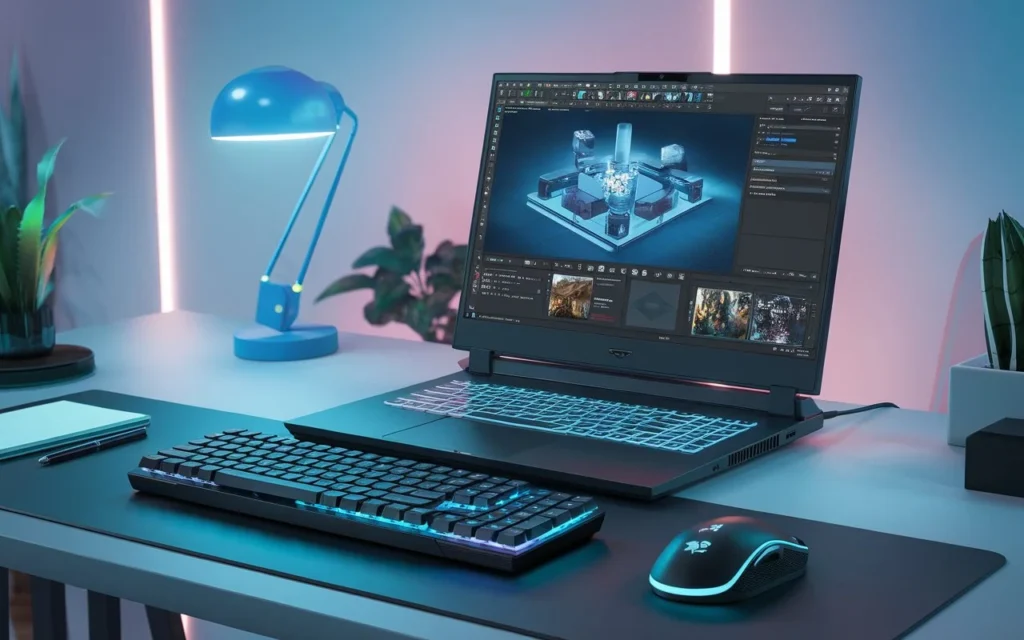
When you’re building games, your laptop isn’t just a tool — it’s your entire development studio. It needs to handle massive textures, complex 3D environments, and demanding game engines without stuttering. Whether you’re creating a simple mobile game or the next AAA title, the right laptops for game development can make your workflow smooth and enjoyable.
Key Features Every Game Developer Needs
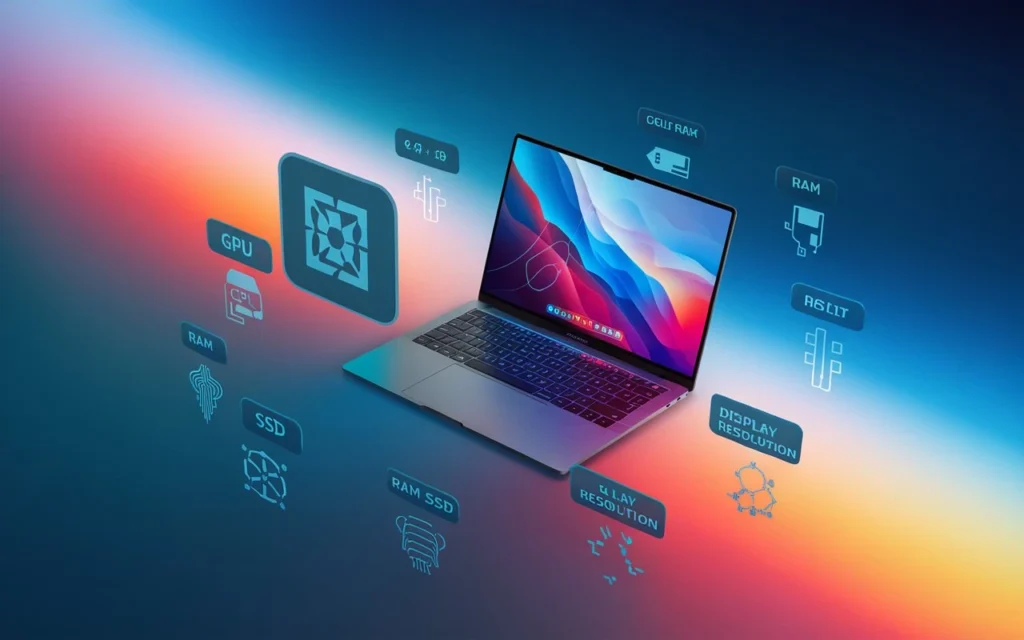
Processor and GPU Power
Game development is CPU and GPU-heavy. You’ll want at least an Intel i7 or AMD Ryzen 7, paired with an NVIDIA RTX 3060 or better. For professional work, RTX 4070/4080 or Apple’s M3 Max chip will deliver excellent results.
RAM Requirements for Game Engines
Game engines like Unreal and Unity are memory-hungry. 16GB RAM is the bare minimum, but 32GB will make a big difference when multitasking with art tools, browsers, and build processes.
Storage: SSD Speed for Large Game Files
An SSD is non-negotiable. Game projects often reach hundreds of gigabytes. Opt for at least 1TB of SSD storage for added convenience. NVMe drives are best for loading large assets quickly.
Display Quality and Refresh Rate
For developers, a high-resolution screen helps with detail, while a high refresh rate (120Hz or more) is great for testing gameplay smoothness. A 15–17-inch display strikes the balance between immersion and portability.
Battery Life vs. Performance
Gaming laptops tend to prioritize performance over battery. Expect 4–6 hours for heavy tasks. If you need long sessions without needing to plug in, consider Apple Silicon laptops for enhanced efficiency.
Keyboard and Build Quality
Comfort matters when coding or designing for hours. Look for sturdy builds, good key travel, and ideally, a keyboard with customizable backlighting for late-night work.
Best Operating Systems for Game Development
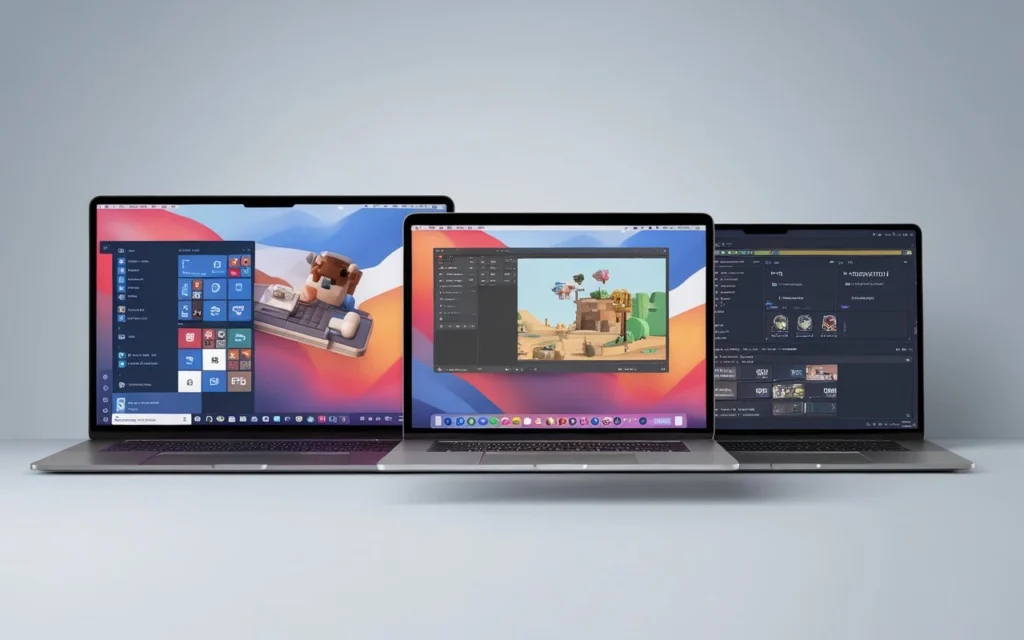
Windows for Game Development
Most game engines and tools are optimized for Windows, making it the go-to for 3D and AAA game development.
macOS for Game Development
Great for iOS and macOS game development, especially with Apple’s M-series chips. Not ideal for Windows-exclusive tools.
Linux for Game Development
Best for open-source projects and certain indie development workflows, but limited support for some industry-standard tools.
Top Picks for Laptops for Game Development in 2025
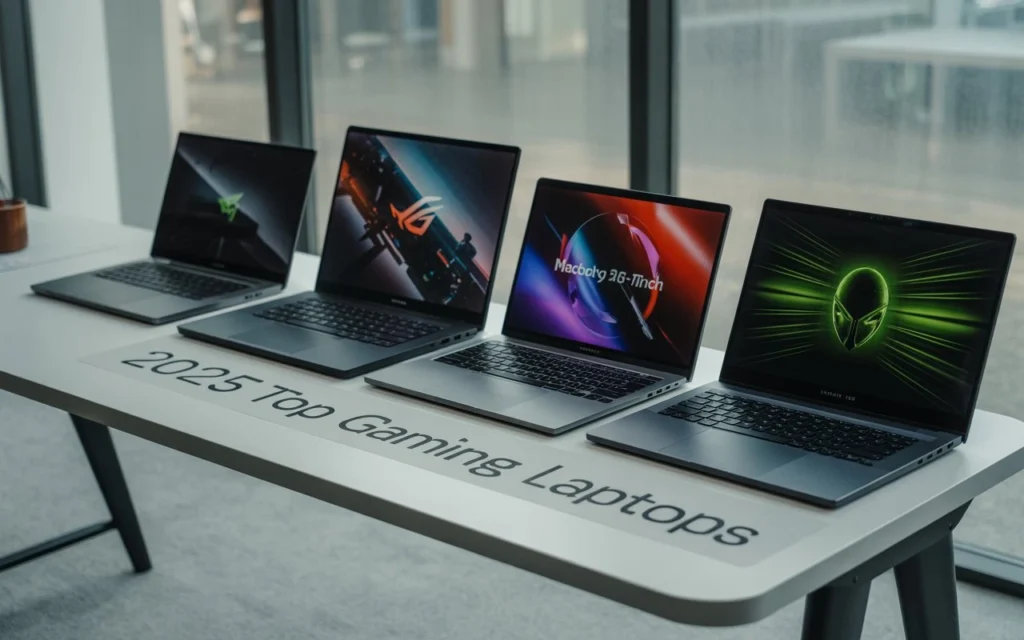
Razer Blade 16
Premium build, powerful GPU options, and stunning display — a favorite for high-end dev work.
ASUS ROG Zephyrus G16
Strong performance in a slim, portable package. Great balance of power and portability.
MacBook Pro 16-inch (M3 Max)
Unmatched battery life and incredible performance for Apple ecosystem developers.
Alienware x16 R2
Bold design, top-tier specs, and a display perfect for testing fast-paced games.
MSI Creator Z17 HX Studio
Tailored for creators — excellent for both game dev and creative work like 3D modeling.
Budget-Friendly Laptops for Beginner Game Developers
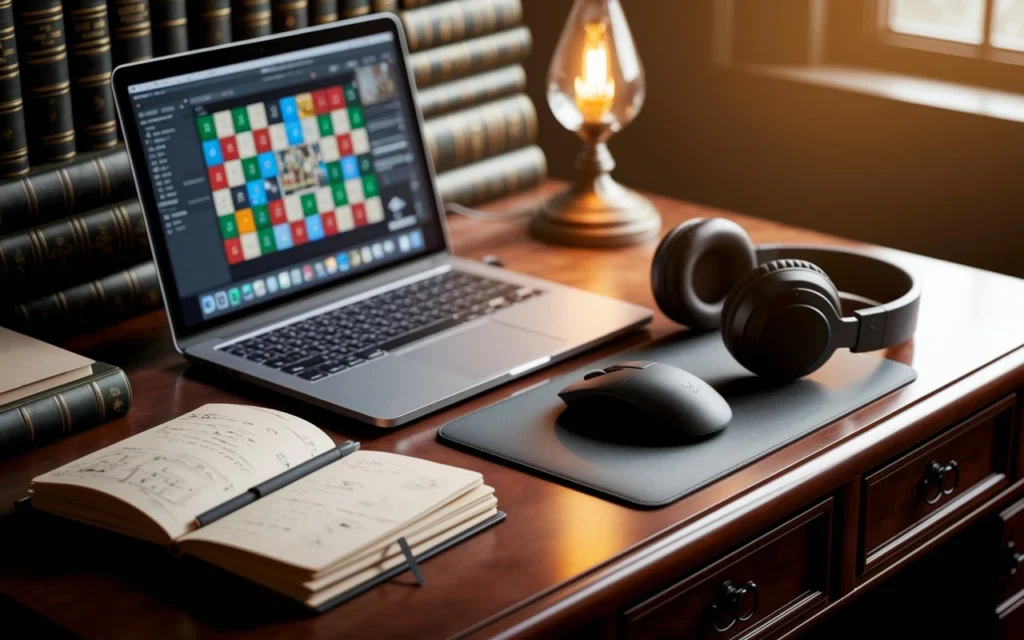
Acer Nitro 5
Affordable but capable of running Unity, Unreal, and Blender for smaller projects.
Lenovo Legion 5
Lenova Legion 5 Reliable performance for 1080p game development without breaking the bank.
Laptops for 2D vs. 3D Game Development
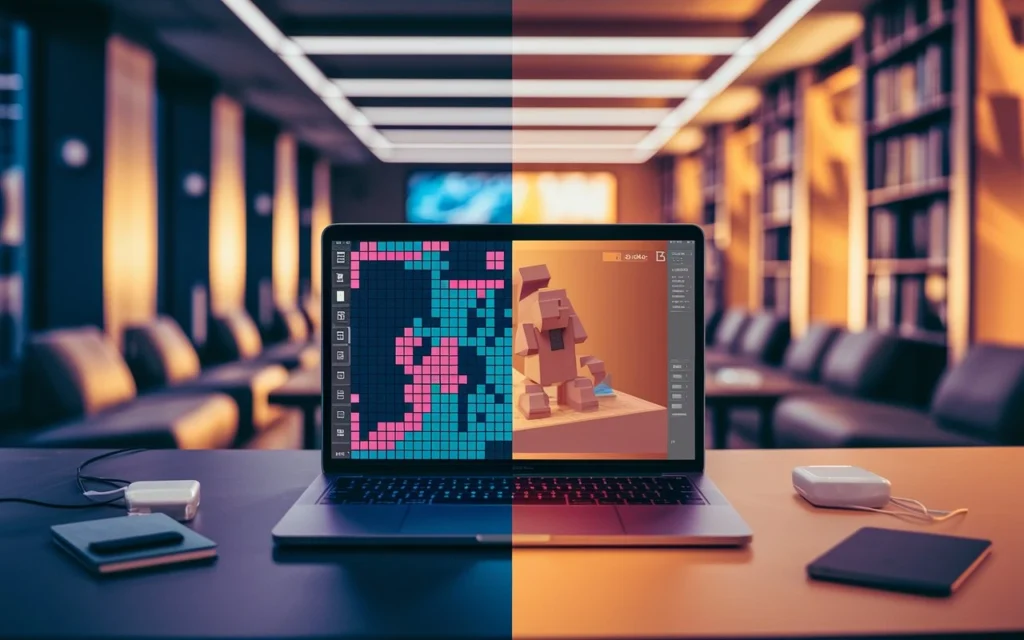
Best Laptops For game development 2D
Laptops with mid-range GPUs (RTX 3050/3060) and 16GB RAM work well, such as ASUS TUF Gaming F15.
Best for 3D Game Development and AAA Titles
You’ll need high-end GPUs like RTX 4070/4080, 32GB RAM, and large SSD storage — Razer Blade 16 or Alienware x16 R2 are ideal.
How Much Should You Spend on a Laptop for Game Development?
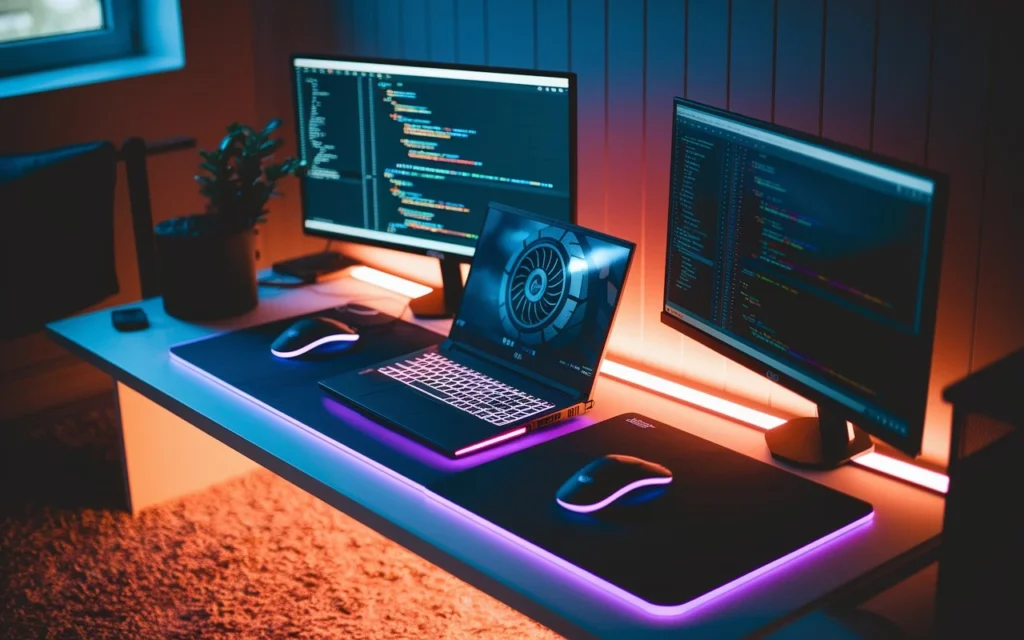
Expect to spend $1,200–$1,800 for a capable mid-range setup and $2,500+ for professional-level machines that can handle large, complex projects.
Tips for Maintaining Your Game Development Laptop
- Keep your GPU drivers updated.
- Use an external cooling pad for long sessions.
- Back up your projects regularly.
- Clean dust from vents every few months.
Conclusion
Choosing the best laptops for game development comes down to your project size, engine choice, and budget. Whether you’re building stunning 3D worlds on a Razer Blade 16, developing cross-platform games on a MacBook Pro, or starting with an Acer Nitro 5, the key is balancing performance, storage, and comfort. Invest in the best laptops for game development for your needs, and it will serve you through years of creative, high-performance game building. And if you also work on websites or apps, check out our best laptops for web development guide for top coding-focused picks.
Frequented Asked Questions:
1. What laptop is best for game development?
The best laptop for game development depends on your needs, but popular choices include the Razer Blade 16, MacBook Pro M3 Max, and ASUS ROG Zephyrus G16. Look for at least an Intel i7 or AMD Ryzen 7 processor, 16GB RAM, and a dedicated GPU like NVIDIA RTX 3060 or higher.
2. Which laptop is best for GTA V?
For smooth GTA V gameplay, go for laptops like the Acer Predator Helios 300, MSI Katana GF66, or Dell G15. They offer powerful GPUs, high refresh-rate displays, and strong processors for open-world gaming.
3. Which laptop is best for gaming in Pakistan?
In Pakistan, good options for gaming include the Lenovo Legion 5, ASUS TUF Gaming A15, and HP Omen 16. These balance price and performance while being more widely available locally.
4. Are gaming laptops good for developers?
Yes! Gaming laptops are excellent for developers, especially game developers. Their powerful CPUs, GPUs, and high RAM make them ideal for running game engines, compiling code, and multitasking.